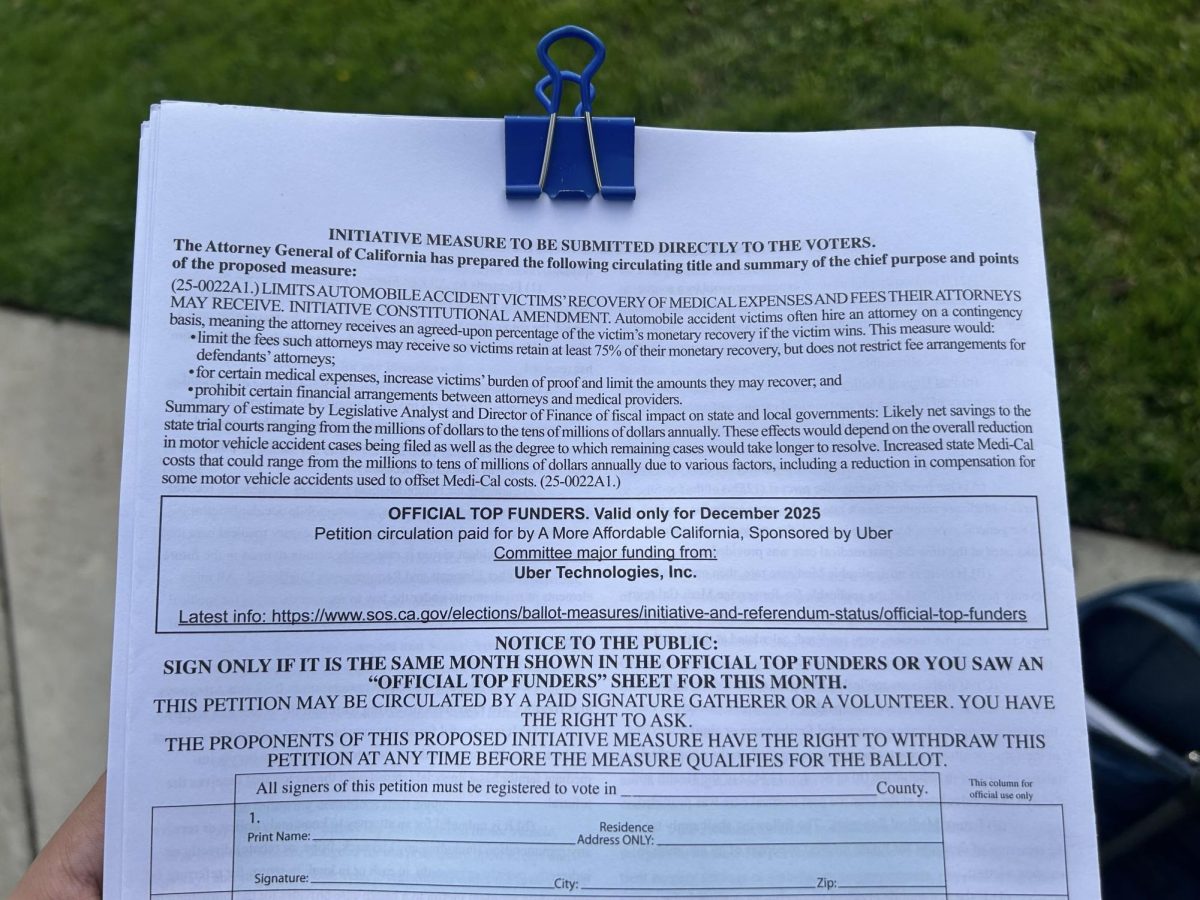Forgive me for employing the over-used cliché “Big Brother is watching you.” If you are unfamiliar with the phrase, it comes from George Orwell’s novel, “1984,” in which the government keeps all citizens under constant surveillance. The idea may have sounded far-fetched when Orwell wrote the novel in 1949, but with new technologies that reality is far closer to the truth.
Federal laws regulating who can access this information and for what purpose haven’t been updated to keep pace with current technology.
If your cell phone is turned on, your location is registered with cell towers every few minutes and many cell service providers keep records of where you have been. If your phone or some other device is GPS enabled, people other than you can keep track of where you are, often without your knowledge or permission. Police are gaining access to this geolocation data without having to obtain a search warrant.
If that idea doesn’t sound creepy to you, it should.
The Supreme Court addressed a specific issue involving warrantless GPS tracking on Jan. 23 in the case of United States v. Jones. A lower court had overturned the 2008 drug trafficking conviction of Antoine Jones, because police obtained the GPS tracking evidence used to convict him without a warrant. The Supreme Court affirmed the lower court’s decision by ruling that police cannot attach a GPS tracking device to your car without a warrant.
However, the justices were divided in their reasons for coming to this conclusion and explained their reasons in three separate opinions, detailing why they decided what they did as well as what they did not decide.
According to the majority opinion written by Justice Antonin Scalia, police violated Antoine Jones’ Fourth Amendment right against illegal search and seizure by placing the GPS device on his car without a warrant.
“The Government physically occupied private property for the purpose of obtaining information,” Scalia said. “We have no doubt that such a physical intrusion would have been considered a ‘search’ within the meaning of the Fourth Amendment.”
However, does the same privacy standard apply when obtaining your personal information in ways that do not involve a physical trespass, such as using your GPS enabled smart phone to track your location?
“It may be that achieving the same result through electronic means, without an accompanying trespass, is an unconstitutional invasion of privacy,” Scalia said. “But the present case does not require us to answer that question.”
However, this question needs to be answered. Should we wait for another case to come before the Supreme Court to let them decide our electronic privacy rights?
As someone who considers himself a liberal on most issues, I found it ironic that I agreed with the opinion of conservative justice Scalia, which was touted by conservative Justices Anthony Kennedy, Clarence Thomas and Chief Justice John Roberts. Although liberal Justice Sonya Sotomayor essentially agreed with Scalia’s majority opinion, she wrote her own opinion to include privacy issues she felt it important to raise.
According to the minority opinion, the police did not cross a line by attaching a GPS monitoring device to Jones’ car without a warrant, but it was the length of time police monitored him (a month) that violated Jones’ privacy rights. Evidently, according to this opinion, a few days would have been OK.
The minority opinion was written by conservative Justice Samuel Alito, and joined by liberal Justices Ruth Bader Ginsburg, Stephen Breyer and Elena Kagan. I found some of the language in this position disturbing.
“New technology may provide increased convenience or security at the expense of privacy, and many people may find the trade-off worthwhile,” stated the minority opinion. “And even if the public does not welcome the diminution of privacy that new technology entails, they may eventually reconcile themselves to this development as inevitable.”
Justice Sotomayor took direct issue with this stance in her opinion, writing, “Justice Alito notes, some people may find the ‘tradeoff’ of privacy for convenience ‘worthwhile,’ or come to accept this ‘diminution of privacy’ as ‘inevitable,’ and perhaps not. I for one doubt that people would accept without complaint the warrantless disclosure to the government of a list of every website (for example) they had visited in the last week, or month, or year.”
We don’t know what this court might decide about what privacy rights we do or do not have with our electronic devices that keep track of where we are or have been. We shouldn’t leave it up to them.
Last summer, Sen. Ron Wyden, D-Ore., and Rep. Jason Chaffetz, R-Utah, introduced the Geolocation Privacy and Surveillance (“GPS”) Act. This Bill would provide clear rules for how law enforcement, businesses, and private citizens can access and use your GPS tracking data.
According to a summary on Wyden’s website, the GPS Act would “require law enforcement agencies to get a warrant when they want to acquire an individual’s geolocation information from a private company” and “require warrants when law enforcement agencies want to monitor individuals’ movements directly, using covertly installed tracking devices or similar means.” In emergency situations, law enforcement officers would be allowed to obtain the information that they need immediately and then obtain a warrant later.
The GPS Act makes sense because it is modeled after federal wiretapping statutes makes sense.
Wyden and Chaffetz are right in stating, “…surreptitiously turning an individual’s cell phone into a tracking device without their knowledge has a substantial privacy impact, just like tapping that person’s phone or searching that person’s house.”
Contact your congresspersons and petition to enact this legislation into law.





